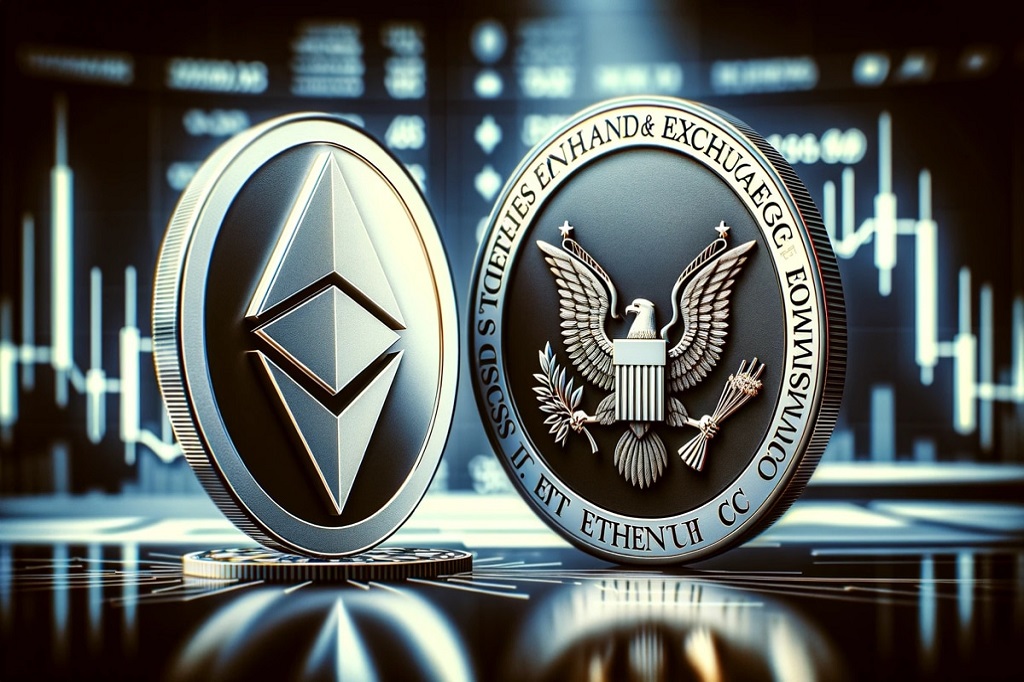Ethereum ETFs: Are They Next After SEC’s Approval of Bitcoin?
-
Bookmakers Review
- November 28, 2024

Now that the SEC has given the green light for Bitcoin ETFs, it seems like just a matter of time before Ethereum gets the go-ahead.
The crypto market and crypto betting sites went into overdrive at the start of 2024 when the Securities and Exchange Commission (SEC) sent out a tweet announcing their approval for listing Bitcoin exchange-traded funds (ETFs) in the United States.
In no time flat, the price of Bitcoin shot up over $3,000 to US$46,984, as investors saw the potential for wider crypto adoption following the long-awaited SEC ruling.
Turns out the tweet was a fake. Or at least that’s what the SEC claims; one day later, they did indeed approve the first 11 ETF listings in America. The price of Bitcoin has settled back down to around $43,000 since then, but look what’s happening to Ethereum: they’re still riding the momentum as we go to press, checking in at $2,585 – their highest price since May 2022.
It appears investors are convinced that Ethereum ETFs will soon be joining the marketplace as well. This will be a watershed moment for Ethereum if it happens – and it does indeed appear we could be heading down that road. Let’s take a quick look at what’s on the map.
Is Ethereum A Good Investment?
There are two reasons to buy cryptocurrency:
- As a medium of exchange.
- As a store of value.
The first is by far the most important: money is only good if people are actually using it.
Ethereum ($311 billion market cap at press time) has a lot of good things going for it, but it’s still a distant second to Bitcoin ($845 billion) when it comes to crypto.
ETFs can change that.
Thanks to the SEC, you no longer need a digital wallet or an account at a crypto exchange to get into Bitcoin; you can just buy shares of a Bitcoin ETF, expecting those shares to rise and fall more or less in concert with the coin itself.
Even if that’s still a textbook example of buying crypto as a store of value, investors are confident that demand for Ethereum will rise once the SEC allows the listing of Ethereum ETFs on American markets. As they should be; hedge funds like BlackRock are driving this push, and BlackRock’s iShares Bitcoin Trust (IBIT) saw some $1 billion in ETF trading volume the day they were listed. Of course they want some more of that cheddar.
BlackRock CEO Larry Fink said so himself. “I see value in having an Ethereum ETF,” Fink told CNBC in a recent interview. “These are just stepping stones towards tokenization, and I really do believe this is where we’re going to be going.”
What Is Tokenization?
The thing is, tokens are nothing new in and of themselves. You use them when you play poker at the casino, or when you ride the subway. However, digital tokens that represent assets living on the blockchain are relatively new, and as the NFT (Non-Fungible Token) craze showed us, it’s still the Wild West out there.
Fink, and presumably most other hedge fund managers, want you to see crypto as an investment rather than currency. In his words, crypto is “an asset class that protects you” from outside forces, something you can buy like gold – or should we say like iShares Gold Strategy ETF (IAUF).
Crypto does indeed protect you, at least in theory; using tokens on the open ledger helps to eliminate opportunities for fraud and money laundering. But that’s if you use them intelligently, taking the same precautions you would presumably make going into any financial transaction like, for example, getting right what your best payment options are when playing at an online sportsbook.
Buying up and hoarding a bunch of crypto ETFs might help some hedge fund manager’s bottom line in the short term, but what will it do for your portfolio?
That part’s harder to say. While the SEC did indeed give the signal to start listing Bitcoin ETFs, it wasn’t exactly a ringing endorsement. SEC chair Gary Gensler remains skeptical about crypto in general, referring to Bitcoin as “speculative” in a written statement issued after the ruling. But he also called Bitcoin a “non-security commodity,” which is why it’s been approved for listing.
Ethereum isn’t a lock to receive the same rubber stamp this May when the SEC decides whether to approve ETFs from BlackRock, Invesco, and others. If Gensler views Ethereum as a security rather than a commodity, the path toward ETF acceptance will become very thorny indeed.
But not impassable. It wasn’t that long ago when the idea of a Bitcoin ETF would have been science fiction, yet here we are. Don’t be surprised if things work out for Ethereum ETF hopefuls, at least in the medium term.












